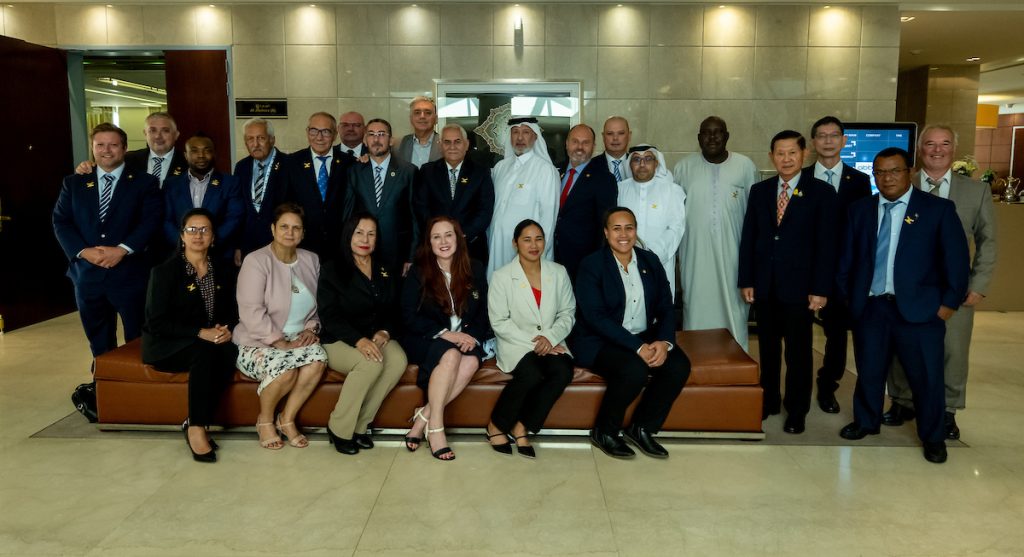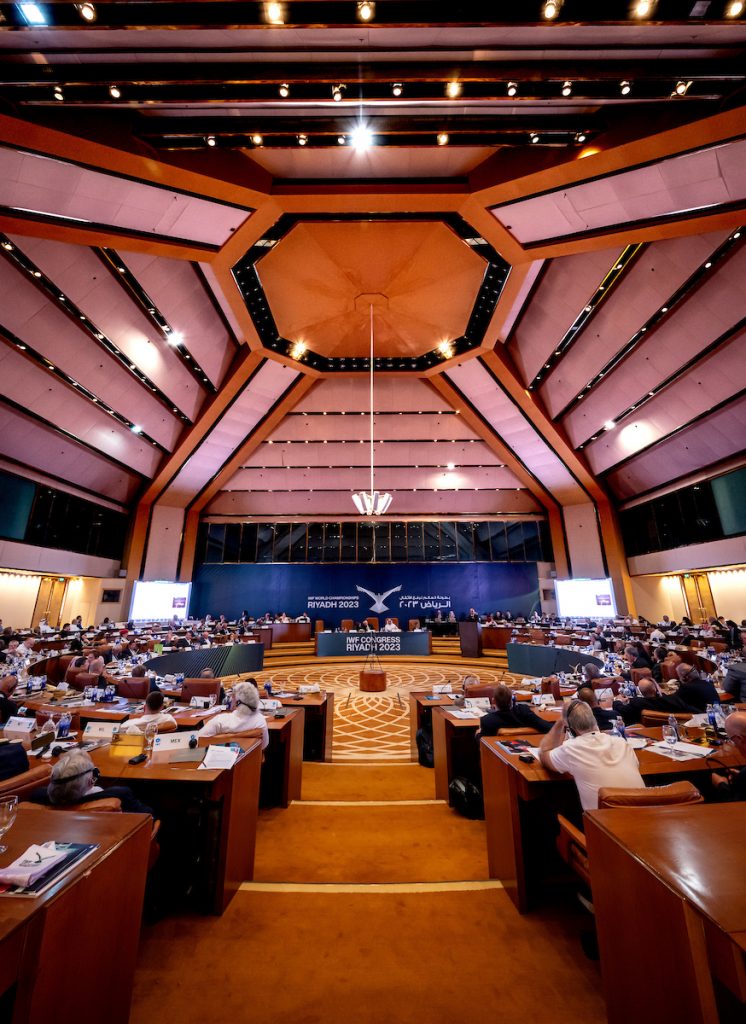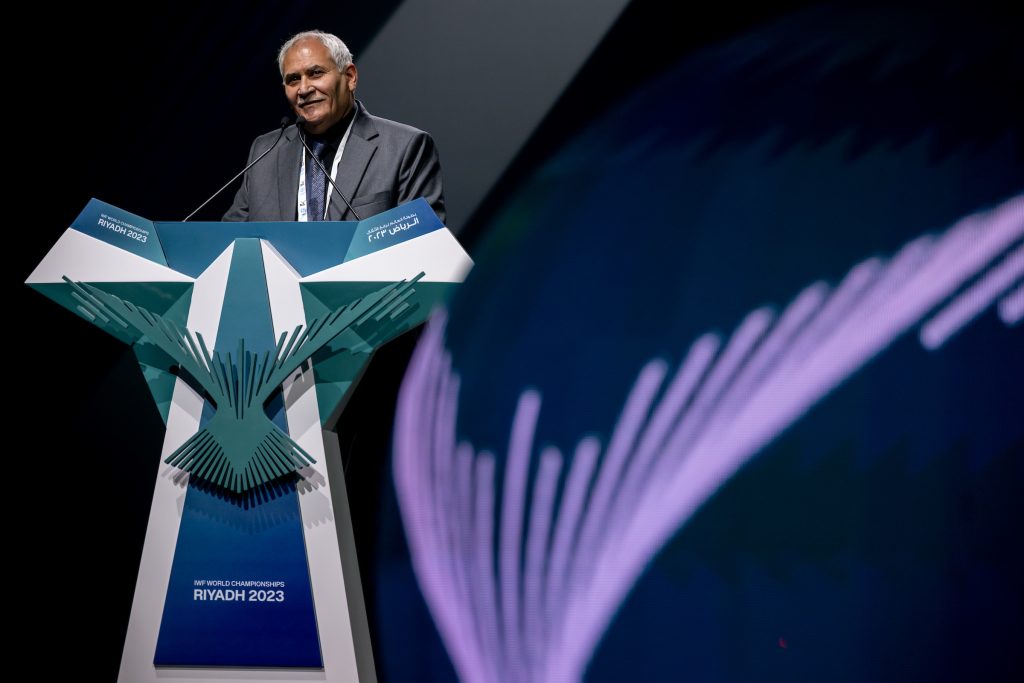2024-2032 IWF Strategic Plan, Pillar 3: Keeping the IWF safe
It is clearly written in the Strategic Plan: “Good governance, accountability, transparency, and ethics should always come first when evaluating the reputation of a sports organisation. This is also true for the IWF. Mechanisms to ensure all those values are in place and functioning need to be constantly reinforced and monitored. The solidity of an international federation is also built on the capacity it has to generate revenues, allocate resources to its valuable human resources and, of course, develop the best possible relations with other entities with which it relates”.
The third pillar of the 2024-2032 IWF Strategic Plan relates to a fundamental aspect: building up and reinforcing the reputation of our international federation, guaranteeing at the same time its financial sustainability, or to put it simply: Keeping the IWF safe. After focusing on Athletes and on Events, we analyse this week all the mechanisms capable of guaranteeing the best standards in the implementation of the IWF activities.

This chapter naturally begins by highlighting the importance of ensuring a good governance strategy, by which all the IWF stakeholders abide by the Constitution. Emphasis is put towards transparency in everything the IWF, its Continental and National Federations are doing, and equally on the sanctions to be applied on those bodies or individuals not respecting these obligations. The IWF community must definitively establish a culture in which personal biases and interests are put aside and actions are taken in the collective interest of those concerned by those decisions.
This ethical behaviour is also reinforced by periodical accountability checks to the IWF finances and management. The creation of a Financial Committee is proposed – this body should be responsible for overseeing the Federation’s economic and financial status, the IWF risk management policy, and the implementation of a successful financial strategy. Periodical reports, with a clear and precise indication of the income, revenue, and audit are to be produced and published.
The financial strategy is deeply linked to revenue optimisation. Recognised as one weak point in the present life of the IWF, new opportunities must be generated, namely in the areas of marketing, sponsorship, and TV rights. Other possibilities to consolidate the IWF finances may include additional funds generated by the host fees and all other income related to the organisation and staging of IWF events.
On a broader approach, an Innovation Committee could be a good solution to reflect and propose new ideas for the future of the IWF, in a climate of positive internal and external debate among all our Federation’s stakeholders. A thorough study of the sports international market environment is necessary to identify new trends and opportunities, but also to know about new technological tools able to help speed up processes and working procedures within the IWF. On this topic, the approval of the IWF Strategic Plan in September was accompanied by another important decision: the working group responsible for its creation will be kept in place, this time as the Monitoring Group in charge of assessing the implementation of the Plan.

Many of the above-mentioned measures can only be real if adequate human resources are allocated to the execution of these actions. The future of our international federation is linked with the growth and reinforcement of its headquarters in Lausanne, the Olympic capital. In-house staff should be prioritised over third-party providers and a clear organisational chart is to be developed.
This overall effort has to be complemented by the reinforcement of the relationship with our privileged partner, the International Olympic Committee. As an important player in the Olympic Movement, the IWF has to look into ways of improving its institutional presence within the IOC, namely by raising the number of IWF officials in the IOC Commissions or by participating in a more active way in all IOC campaigns related to the Olympic values.
Finally, other institutional connections need to be reinforced – for example, with the United Nations and some of its agencies, but also with the environment around the IWF headquarters, the city of Lausanne, the Canton of Vaud, or the Federal authorities in Switzerland. More discussions with other International Federations are useful in the implementation of common projects or in the resolution of similar challenges.
 The IWF President Mohammed Jalood
The IWF President Mohammed Jalood
As stated by the IWF President Mohammed Jalood in the introductory message of the Strategic Plan: “The IWF is aspiring to consolidate its place in the Olympic Movement and to reinforce its status in a very competitive sport international environment. We are fortunate to have such strong and diverse expertise and experience among our members, but as a 21st-century organisation, we need a plan for how to maximise this and ensure we reach our full potential. This is fundamental to establish priorities, to allocate resources to implement them and, equally important, to measure success”.
Mr Jalood concludes by saying that “given the eight-year period it covers, the IWF will assess the level of execution of the Strategic Plan at regular intervals. This is necessary to maintain the focus and to evaluate the implementation of certain actions, deemed urgent or essential in a given context or situation. The Plan is not set on an automatic pilot mode, we definitively need to verify and fine-tune, if necessary, its path to a destination of progress and enhanced development”.
This is the third weekly article consecrated to the analysis of the 2024-2032 IWF Strategic Plan, recently approved by the IWF Congress during the IWF World Championships, in September 2023. Next Friday, we will conclude this series with the fourth and last pillar of the Plan: Reaching beyond the IWF.
By IWF Communications
Photos by Giorgio Scala/Deepbluemedia










